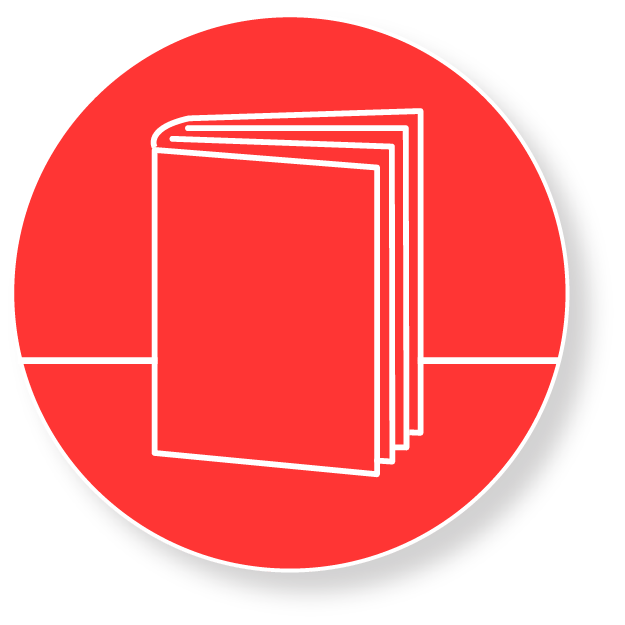The selected fragments are from Ustrój Związku Socjalistycznych Sowieckich Republik. Doktryna i konstytucja (“The Political System of the Union of Soviet Socialist Republics. Doctrine and Constitution”), Krakowska Spółka Wydawnicza: Cracow 1929, pp. 5, 16-18, 22-24 and 44-47.
Bolshevism is a battle against mysticism fought in such a way that it itself turns into a mysticism. As in the Cromwellian revolution God served as an explanation and a justification for the actions of the dictator, so in the Bolshevik revolution the dictatorial proletariat seeks its justification in a dogmatically, uncritically, religiously adopted materialist historiosophy. The proletariat plays the role of the savior and redeemer, and “revolution”, the “revolutionary spirit” replace religious inspiration, ecstasy. […]
The Soviet constitution is for me an indication that one cannot build a state and a constitution, one cannot create norms on metaphysical and irrational foundations. A system where lawfulness is defined in terms of revolutionary legality, where the only norm is the temporary character of the constitution as a means of realizing a distant utopia regarded as a consequence of natural development, a system where it is left to the discretion of a person appraising the course of this development to decide in every particular case what the law is – such a system is a negation of law. Revolution supplants norms with the arbitrary judgment of those who decide, and arbitrary judgment established as a rule is a negation of norms.
In the Soviet doctrine and in the Soviet constitution it is “class interest” which provides legal norms and “objective rights”, while “norms, that is rules intended to sustain and protect this interest” are only “subjective elements of law.” This principle, endowing the dogma of the dictatorship of the proletariat with a normative character, has been consistently enforced by Soviet law. Right after the revolution the courts were ordered to “base their verdicts and sentences on the statutes promulgated by the deposed government only if these statutes were not abolished by the revolution and are not contrary to the consciousness and idea of revolutionary law.” The abolition of the existing statutes, then, was made dependent not on legal norms, but on factual and psychological factors: the “revolution” (not “revolutionary law”) and the “consciousness and idea of revolutionary law” (again, dependent not on revolutionary law itself, but on its “consciousness” and “idea.”) Likewise, the application of the law issued by revolutionary governments was made dependent on factual and psychological factors, as it was declared that “in a whole range of cases violations of the law may be just as compatible with the [revolutionary] purpose as applying the absolute principle of legality.” Not compatibility with the norm, then, but “compatibility with the revolutionary purpose” is the guiding principle. Moreover, even in those places where the need for legality is emphasized, the goal is not compatibility with the norm, but the “discipline of the state apparatus”, that is submission within the hierarchy of institutions, and not within the hierarchy of norms.
Once we notice that the principles of “revolutionary legality” and “revolutionary idea” do not have any specific legal meaning, and hence that the decision of whether the application of a statute is compatible with these principles is left to the institution applying the norm and depends on how this institution appraises the factual circumstances, we arrive at the following conclusion: the concept of a general norm which is binding for those applying it is unknown to Soviet law. The Soviet State, making the content of a decision dependent on the will of the organ issuing the decision, turns every decision into an administrative act with unlimited discretion (overturning a decision of a lower organ by a higher organ is based on considerations of purpose and not violation of the norm; it is based on a different appraisal of the factual circumstances by the higher organ, and hence it does not qualify discretion). Each organ is simultaneously a legislator, an administrator, and a judge. Not only by declaring in the constitution that the same organs perform legislative and executive functions, but also through the principle of revolutionary legality Soviet law rejected the principle of separation of powers.
1) The revolution is a period when […] pre-Revolutionary law no longer exists, and a new one has yet to develop. The Soviet State is revolution made permanent, for it is a state where the old law has been destroyed, and the creation of a new one has been postponed until some distant and mythical future.
2) The revolution is a period when the self-conscious will of the new rulers enacts a utopia, which is their motivating force, their self-conscious, rationally conceived program. The Soviet State is a state where utopia is not enacted by the new rulers, but it is expected to enact itself in an organic, natural process of development, and the rulers confine themselves to removing factors which, in their view, constitute mechanical obstacles to natural progress.
3) The dictatorship of the proletariat is a system where the power exercised by the dictator is not restricted by any norm, except for the “revolutionary idea”, subject to his own interpretation, and he shifts the responsibility for exercising the dictatorship on the myth of materialist historiosophy. He is not constrained by anything but his faith. He commands the future to justify this faith. […]
The Soviet constitution displays a number of characteristic features, which mark it off clearly and sharply from the political system now dominant among states belonging to European-American civilization.
a) Within the Soviet constitution, along with a system of “state” powers there exists a sovereign system of the Soviet communist party, the only lawful party in the Soviet State. Using a number of means, the party determines the policy of the Russian State. […]
b) The Soviet system is a political expression of the dictatorship of the proletariat doctrine. “The soviets constitute the immediate organization of the working and exploited masses” (Lenin). The soviets are collegiate bodies, debating and directing, selected for governing the state by the “working population” (proletariat of workers, soldiers and peasants).
c) The Soviet State is not a state where the rule of law prevails. The activities of state institutions and the rights and obligations of citizens are not based on objective legal norms that have been published and can be modified only in a certain predetermined way. The main principle of the political order is a certain socio-political doctrine, the communist doctrine, and the norms of the written law are only guidelines. Should applying these norms be detrimental to the interests of the proletariat and to the social revolution, state organs are obliged to overrule these norms and act in accordance with the interests of the proletariat. […] Soviet statutes, including the constitution, are changed and amended in a completely arbitrary way by arbitrary organs, sometimes quite obviously not empowered to do so. The crucial concept for understanding the essence of Soviet law is therefore “revolutionary legality.” The revolutionary spirit is in the Soviet Union a conservative element, a stable legal element. “Revolutionary legality consists in the precise implementation of […] statutes, but only inasmuch as they are in accordance with the requirements of the revolutionary conscience and the class interests of the proletariat” (as is proclaimed by the “official organ of the people’s Commissariat of Justice” – editor’s note).
The (almost unrestricted) right of higher state organs to change every decree of a lower organ, although formally lawful, goes counter to the goal of Soviet legislation defined above, and, to make matters even worse, it renders the individual helpless against the centralized bureaucratic state machinery, again directed by the communist party.
d) The Soviet State is a class state. The principle of equality before the law is unknown to Soviet law. Only members of the working class (the proletariat) enjoy political rights and, to some degree, civil rights, and this group includes members of the Communist Party who are accorded special privileges. Members of other social classes (the bourgeoisie) do not enjoy these rights, or have them only to a limited degree.
e) In the organization of state power the Soviet State does not recognize the principle of the separation of powers. The same organs perform legislative and administrative functions, and the courts are administrative bodies separate only in a technical sense. The principle of judicial independence is regarded as a fiction and is not recognized. Since the principle of legality is not recognized, the hierarchy of norms disappears, and thus the material difference between a legislative act, an administrative act, and a verdict loses its meaning.
f) The organization of Soviet powers is based on the collegiate principle. Generally each office is held collectively, on the lowest level (that of the municipality and village) officials are chosen in direct elections, and on higher levels in indirect elections by lower organs or by delegates of lower organs. Franchise is not universal, not equal, and the ballot is not secret. […]
In the West we have become accustomed to regard the constitution as an expression, a crystallization of a program, as a realization and establishment of certain ideas, as a stable point amidst the changing life of societies. Here on the contrary: there is no stable point. There is only continuous change, continuous new creation (revolution, the overthrowing of what is, also constitutes a kind of creation, and a highly intense one at that); there are only “experiments.” It is not a program or an idea that finds its expression on the pages of the constitution. A program, an idea is something distant and removed, while the constitution is only an imperfect and changing means, only an expression of a transient need, only a way to survive the period when the world is divided in two enemy camps: the capitalist and the socialist one. Moreover, we should not underestimate the fact that the Soviet constitution is directed against the enemy camp, and not towards its own ideology.
In this sense it is “provisional.” Precisely on account of this provisional character Soviet political life incorporates a number of contradictions that arise between the actual circumstances and the Soviet program. The Soviet ideology, the words of the constitution, suggest that the centers of political life should be placed at the bottom, on the lowest levels of the Soviet system. The first period of the revolution, the period when every village was a separate unit, and every administrative district (volost’) and province was a sovereign state, constituted the classic era of the Soviet system, now long past. In practice there is today only one center and in practice all power remains in the hands of this center and of its administrative organs.
This practical result derives not only from the concentration of power necessary in a period of revolution and counterrevolution, but also from another contradiction embodied in Soviet political life. The socialist, urban and anticapitalist Soviet ideology has been implanted in a peasant country, a country of small capital and private property. The result: communism in the center, anticommunism on the peripheries. The centralization of power and the bureaucratization of the state are means of rectifying this fact. The centralization of power makes it possible to turn 90% of the peasant votes on the lowest administrative level into 90% of the communist votes on the highest level and to oversee this process. The monopoly on legality possessed by the communist party serves to destroy, or to keep in a disorganized state, all the forces which could in the future produce rivals for communism.
Thus doctrine and social relations, theory and practice are combined into one whole, whose aim is the following: to survive the period of struggle against capitalism, to save the proletarian island stranded on a hostile globe. This constitutes the greatness of the system. Its tragic character lies in the fact that it will not survive. Its own wave, the Russian kulak, will flood this island. Stalin’s slogan: “We must reach out towards the countryside”, correctly identifies the greatest danger.







